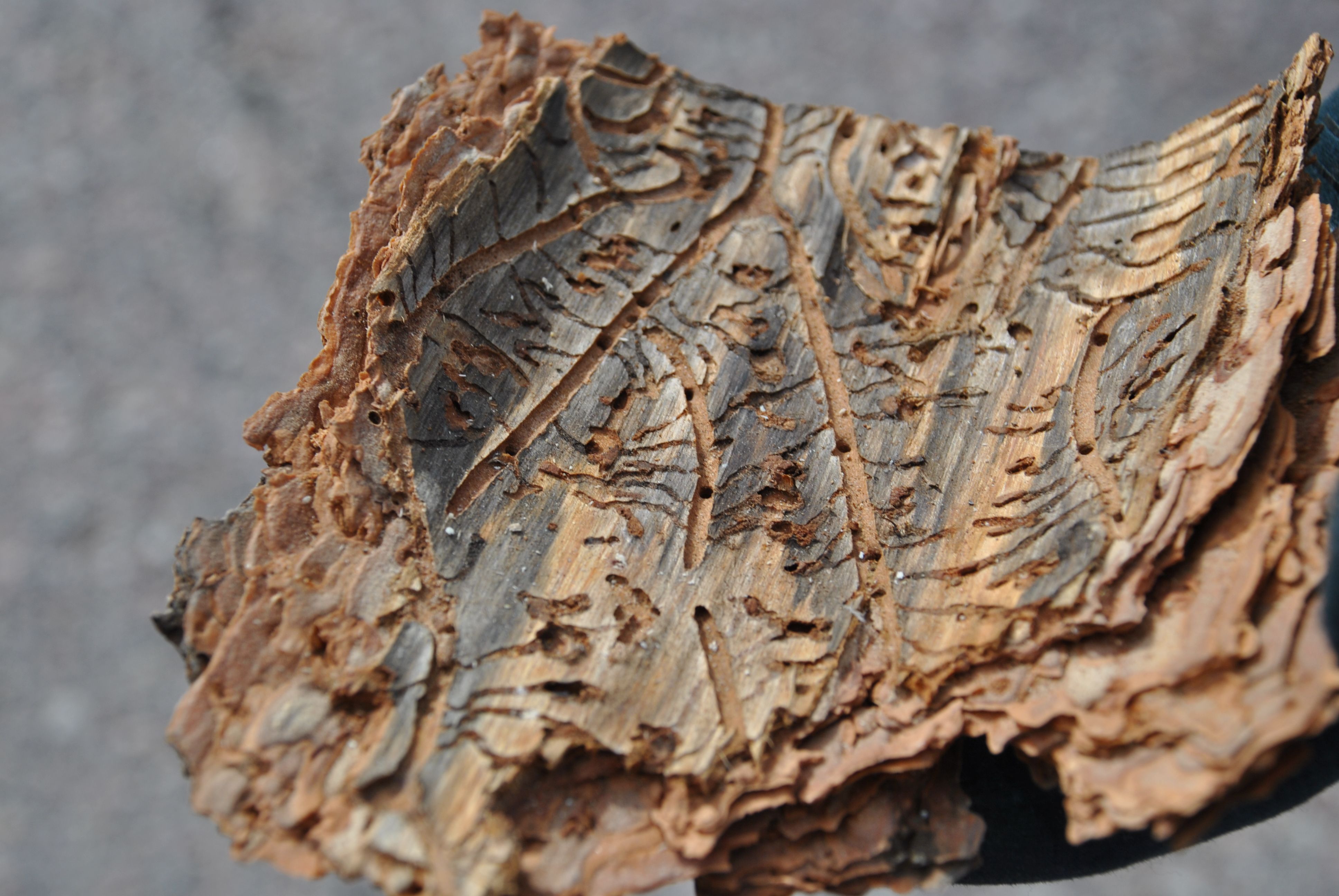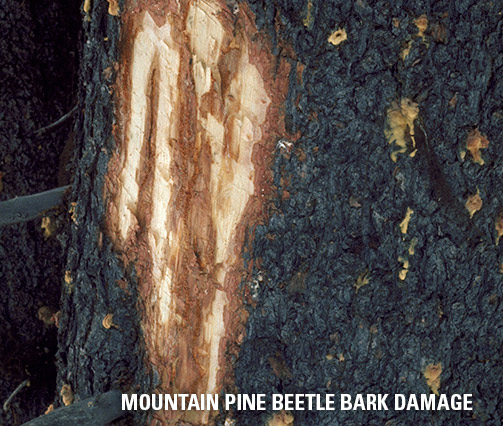
Arbor-wellness: Bark Beetles
What are bark beetles?
Bark beetles are common pests of pines, spruce, cypress, oaks and even elm trees. There are over 200 types found in California, of which about 20 are serious problems for us.
Why are there so many trees dying from bark beetles?
Our trees are still recovering from the 6 year drought a few years back. It will take several more years of good winter moisture before our trees have fully recovered. If there are additional stresses like compacted soil, excess salinity from reclaimed water or poor soil nutrition, it will take even longer. Because our trees are still weakened, they are not producing the auxins and other chemicals that help them ward off pests. Bark beetles and other pests have an easier time attacking and often killing trees that if healthy would problem not succumb.

How do bark beetles harm the trees?
Bark beetles in particular, lay their eggs inside the bark of trees. When the larvae hatch, they begin to feed on the living tissue just inside the bark layer. This slows or stops the transportation of water and nutrients up and down the tree. As they mature, they pupate into adults, exit the tree and look for more trees to attack. When enough bark beetle larvae are feeding on a particular tree, the tree can’t recover and dies. Sometimes the beetle will introduce a disease into the tree which either helps kill the tree, or increases the rate of wood decay, making it dangerous faster.
So what should I do?
The most important thing to do is improve or maintain the health of your trees. Proper summer watering, mulch, improving soil health and nutrition all help this process.
Secondly, be proactive about protection. Preseason applications can protect your trees for an entire season and are very cost effective compared to treating a tree after it has been infected.
At Arborwell, we can design a program to help your trees become and stay healthier, plus we can recommend the proper tool to protect your trees from bark beetles and from the disease they sometimes bring with them. Contact your representative today if you are concerned about your oaks, we will help you preserve them for you today AND for your children tomorrow.
To get in touch with one of our certified arborists, fill out the form below: